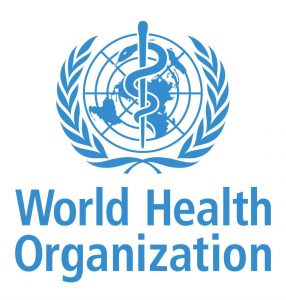Today’s Current Affairs: 11th Jan 2024 for UPSC IAS exams, State PSC exams, SSC CGL, State SSC, RRB, Railways, Banking Exam & IBPS, etc
Table of Contents
Microsoft Launches AI Odyssey Program:

Microsoft has unveiled an ambitious new initiative called AI Odyssey that aims to provide advanced skills training in artificial intelligence (AI) tools and technologies to 100,000 software developers across India.
- The free online program allows anyone passionate about AI to register and access learning content tailored to help them build expertise in applying Microsoft Azure cloud services for creating AI solutions.
- Microsoft AI Odyssey represents a major investment in empowering India’s technology talent to lead innovation in one of the most pivotal emerging fields of computer science.
- The country is well positioned to become an AI powerhouse given its broad base of skilled developers and abundance of potential applications from healthcare to agriculture.
- Providing targeted guidance on mastering AI can accelerate this transformation.
Bio-Imaging Bank:

Mumbai’s Tata Memorial Hospital (TMH), India’s largest cancer treatment facility, is leveraging artificial intelligence (AI) to address the increasing challenge of cancer cases.
- TMH has established a ‘Bio-Imaging Bank’ using deep learning to create a cancer-specific algorithm for early-stage cancer detection.
- The project involves a comprehensive repository of radiology and pathology images, linked with clinical information, for training and testing AI algorithms.
- The initiative, funded by the Department of Biotechnology in collaboration with other institutions, has already reduced radiation exposure for pediatric patients by 40% using AI.
- The hospital envisions AI playing a transformative role in cancer treatment, enhancing precision, and enabling timely diagnoses, particularly in rural India.
Mulya Pravah 2.0:

The University Grants Commission (UGC) is pushing for values and ethics in higher education through guidelines like Mulya Pravah 2.0.
- Mulya Pravah 2.0 is a guideline issued by the University Grants Commission (UGC) in India, aiming to instil human values and professional ethics in higher education institutions. It is a modified version of the 2019 Mulya Pravah guideline.
- Aim:
- Inculcating human values and professional ethics in higher education institutions to build value-based institutions and promote constitutional values.
- Instil deep respect for fundamental duties and constitutional values. Develop a culture of integrity, accountability, transparency, and inclusiveness in higher education institutions.
- Decision-making should be guided solely by institutional and public interest, devoid of biases. Abolishment of discriminatory privileges; emphasis on punishing the corrupt.
- Core Values Institutions are urged to ensure integrity, trusteeship, harmony, accountability, inclusiveness, commitment, respectfulness, belongingness, sustainability, constitutional values, and global citizenship.
- Administration should prioritize transparency, fairness, honesty, and the highest ethical standards. Refrain from misappropriation and reject gifts that may compromise impartial duties.
- The guideline emphasizes maintaining confidentiality and conflicting with the right to information. It mandates institutions to voluntarily disclose critical information for public scrutiny.
- Teacher’s Role Teaching is a noble profession; teachers are expected to act as role models.
- The expectation for staff and student unions to support the administration in development activities.’
Free Movement Regime : India-Myanmar

The Government of India is planning to end the Free Movement Regime along the international border with Myanmar and initiate a comprehensive smart fencing system throughout the entire stretch.
- The Free Movement Regime (FMR), implemented in 2018, allows people residing on either side of the India-Myanmar border to venture 16 km into each other’s territory without visa.
- They can cross over, on production of a border pass with one-year validity and can stay up to two weeks.
- The border between India and Myanmar runs for 1,643 km in the 4 states of Mizoram, Manipur, Nagaland, and Arunachal Pradesh.
Eucalyptus Snout Beetle:

Scientists have found a natural remedy to protect eucalyptus forest plantations from a pest, eucalyptus snout beetle, which is known to cause serious damage to eucalypts.
- Eucalyptus Snout Beetle is a leaf-feeding beetle that is a major defoliator of eucalypts.
- It is also known as eucalyptus weevil.
- The pest is indigenous to Australia but occurs in many countries throughout the world where eucalypts are grown.
- The beetle feeds on leaves, buds and shoots, resulting in stunted growth and deflation and causing heavy losses.
- It can cause damage over vast areas as it has a great flight capability and gets transferred with transport of forest products.
- The pest is mainly controlled with the help of micro-waspsAnaphes spp an expensive solution.
- This led a team of scientists to look for naturally occurring pathogenic fungi to tackle the problem.
International Classification Of Diseases:

World Health Organization’s International Classification of Diseases (ICD) 11 TM Module 2, Morbidity Codes launch event will be held in New Delhi on 10th January, 2024.
- International Classification of Diseases is developed by the World Health Organization (WHO) to classify diseases internationally.
- The global data on diseases currently available is mainly based on healthcare practices to be diagnosed through modern biomedicine.
- It serves a broad range of uses globally and provides critical knowledge on the extent, causes and consequences of human disease and death worldwide via data that is reported and coded with the ICD.
- Clinical terms coded with ICD are the main basis for health recording and statistics on disease in primary, secondary and tertiary care, as well as on cause of death certificates.
- These data and statistics support payment systems, service planning, and administration of quality and safety, and health services research.
- Diagnostic guidance linked to categories of ICD also standardised data collection and enables large scale research.
- The classification of data and terminology relating to diseases based on Ayush systems such as Ayurveda, Siddha, Unani etc. is not yet included in the WHO ICD series.
- Central Bureau of Health Intelligence (CBHI) is an agency under the Ministry of Health and Family Welfare that serves as the WHO Collaboration Centre for ICD-related activities.
- It facilitates the collection and dissemination of data on various diseases and mortality.
INS Kabra:

Indian warship, INS Kabra, an indigenous fast attack craft, docked at the Colombo port in a move aimed at fostering bilateral ties between India and Sri Lanka.
- INS Kabra is a naval vessel named after an island of the Andaman and Nicobar archipelago.
- It belongs to the Car Nicobar class of high-speed offshore patrol vessels built by Garden Reach Shipbuilders and Engineers (GRSE) for the Indian Navy.
- It was the eighth in a series of 10 Fast Attack Crafts.
- The vessels are designed as a cost-effective platform for patrol, anti-piracy and rescue operations in India’s Exclusive Economic Zone.
- The class and its vessels are named after Indian islands.
- They are the first water jet propelled vessels of the Indian Navy.
- With a top speed of over 35 knots, and excellent manoeuvrability offered by her water-jet propulsion, the ship is ideally suited for high-speed interdiction of fast-moving targets.
Ugram:

The Defence Research and Development Organisation recently launched an indigenous assault rifle named ‘Ugram’.
- ‘Ugram’ is a state-of-the-art indigenous assault rifle.
- It has been developed by the Armament Research and Development Establishment (ARDE), a unit of DRDO, in collaboration with a private industry partner.
- It was developed in less than 100 days.\
- It has been developed as per the General Staff Qualitative Requirements (GSQR) of the army into consideration.
- The rifle will deploy rounds of 7.62 mm calibre, making it more ferocious than rifles that use 5.62 mm calibre rounds, like the INSAS rifle, which is popularly used by the armed forces in India, including paramilitary forces.
- It has an effective range of 500 metres.
- It weighs less than four kilograms.
- The rifle has a 20-round magazine that fires robustly and in full auto mode.
Drishti 10 ‘Starliner’:

Chief of Naval Staff recently flagged off the first indigenously manufactured Drishti 10 ‘Starliner’ Unmanned Aerial Vehicle (UAV) for the Navy.
- Drishti 10 ‘Starliner’ is an indigenously manufactured Unmanned Aerial Vehicle (UAV).
- It was developed by Adani Defence and Aerospace.
- It is an advanced intelligence, surveillance, and reconnaissance (ISR) platform with 36 hours endurance and a 450 kg payload capacity.
- It is an all-weather military platform which has clearance to fly in both segregated and unsegregated airspace.
- It is designed to possess high endurance, combat-proven capabilities, and advanced features, providing a significant boost to India’s naval capabilities.
- The UAV’s autonomous nature, coupled with its mission effectiveness and payload configuration options, makes it an invaluable asset for strategic operations.
- One of the distinguishing features of the Drishti 10 ‘Starliner’ is its minimal maintenance requirements, making it cost-effective and operationally efficient.
- This characteristic ensures increased operational readiness, reducing downtime, and maximising deployment opportunities.
- It is equipped with advanced communication systems, including satellite communication and Line-of-Sight (LOS) data links, ensuring reliable and secure data transmission.
Prasadam:

Union Minister for Health & Family Welfare recently inaugurated the country’s first healthy & hygienic food street, ‘Prasadam’, at Neelkanth Van, Mahakal Lok, in Ujjain, Madhya Pradesh.
- Prasadam is the country’s first “Healthy and Hygienic Food Street”.
- It has been opened at Neelkanth Van, Mahakal Lok, in Ujjain, Madhya Pradesh.
- It will connect people in every corner of the country with pure and safe local and traditional food.
- Spread over 939 square metres with 19 shops, Prasadam offers convenient and culturally rich dining options for the 1-1.5 lakh devotees who visit the Mahakaleshwar Temple daily.
- The food street is designed to provide various facilities, including a kids’ play area, drinking water facility, CCTV surveillance, parking, public conveniences, and seating spaces.




